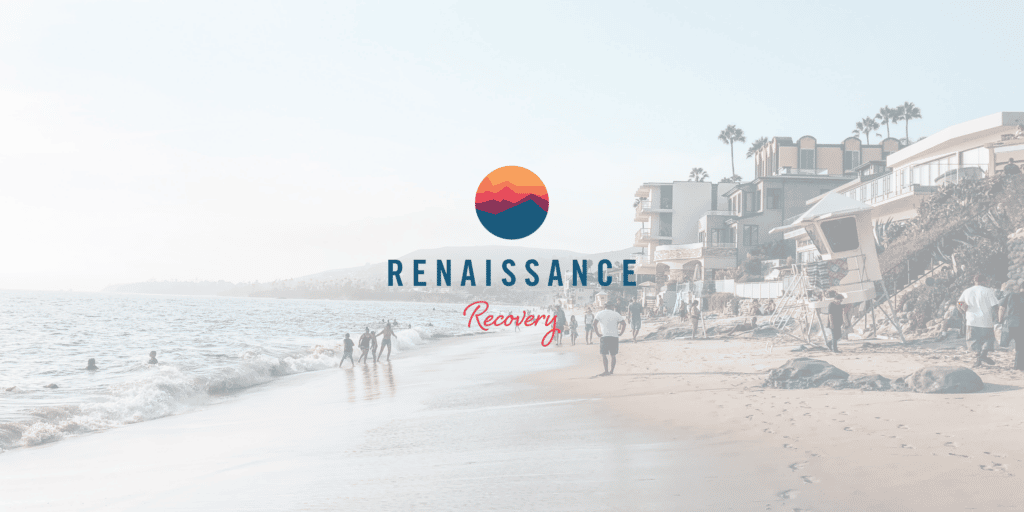Many people struggling to overcome addiction have heard the term “California Sober”. But what is California Sober exactly, and does it work?
California sober is a term that refers to a lifestyle where individuals abstain from all substances except marijuana. While some may view Cali sober as a way to replace addictive substances with seemingly less harmful alternatives, the safety and effectiveness of this approach generates significant debate within the sober community.
Need help getting addiction treatment?
The Urban Dictionary’s California sober definition: “A form of harm reduction that utilizes only Marijuana and plant-based medicines. Hard Drugs and alcohol are excluded under California Sobriety.”
This brief guide explains the concept of California sober, emphasizes its potential pitfalls, and highlights the negative consequences of relying on marijuana as a substitute for other drugs. This article is meant for informational purposes, Renaissance Recovery is not a California Sober facility.

California Sober
The term “California sober” was coined by author Michelle Lhooq in an essay published in Vice magazine. Lhooq shared her personal experience of abstaining from all drugs except marijuana and psychedelics. Different interpretations of California sober exist, with some allowing for the moderate use of hallucinogens and psychedelics.
The California sober approach essentially encourages individuals to refrain from what is considered the “more dangerous” addictive substances, replacing them with what is seen as “less dangerous” and less addictive substances. The problem with this approach is that it very often leads to full on relapse of the more dangerous drugs, and even unhealthy abuse of the Cali sober approved ones.
Individuals who suffer from substance use disorder are often not able to sustain being Cali sober as their brains are often still wired to become chemically dependent on substances. This is a real, diagnosable disorder that requires professional treatment and abstinence, not merely “cutting back”.

What Are the Drawbacks of California Sober?
While everyone has a unique experience of addiction and recovery, there are some potential pitfalls for anyone considering the Cali sober approach. These include:
- Dangers of self-medication
- Negative consequences of marijuana
- Returning to old habits
- Failing to treat the underlying problem
- Minimal harm reduction delivered

1) Dangers of self-medication
In traditional addiction treatment, medical professionals often employ MAT (medication-assisted treatment) to streamline the withdrawal process. This approach is closely monitored and supported by scientific evidence. However, with California sober, individuals take control of their substance use without professional guidance. For those struggling with substance use disorder, this can be a risky path. Moderation is often challenging for individuals with addictive tendencies – a defining characteristic of addiction is the inability to control or moderate substance use regardless of adverse outcomes. Switching substances may merely shift the dependency without addressing the underlying issues. Most successful recovery plans emphasize abstinence.
2) Negative consequences of marijuana
Laws surrounding marijuana are changing across the United States and researchers continue to investigate the potential benefits of marijuana. That said, marijuana is associated with adverse outcomes that include issues with short-term memory, learning, and concentration. Additionally, marijuana can impair judgment, motor coordination, and motivation. It may also lead to paranoia, psychosis, irritability, depression, anxiety, and sleep problems.
Long-term use of marijuana can result in lung damage and addiction, with tolerance, cravings, and dependence developing over time. Research shows that roughly 30% of those who use marijuana later develop an addiction (marijuana use disorder). The risk of developing an addiction to marijuana is heightened among those who use marijuana frequently, and among those who started using marijuana during youth, according to this study.
Beyond this, marijuana remains illegal on the federal level, potentially leading to legal complications for those adopting the California sober approach to addiction recovery.
3) Returning to old habits
Simply replacing one substance with another increases the likelihood of relapsing into the original addictive substance because longer periods of abstinence are associated with a reduced risk of relapse. The risk is especially significant in states where marijuana is not legalized. Obtaining the new substance may require visiting locations where the previously struggled substance is accessible. Since marijuana impairs judgment, this increases the chances of poor decision-making. Coupled with potential mental health issues associated with addiction – co-occurring disorder or dual diagnosis – this can create a dangerous environment conducive to relapse.
4) Failing to treat the underlying problem
One of the main flaws with the California sober approach is that it fails to address the cause of addiction. Substance use is oftentimes a coping mechanism used to deal with underlying problems like anxiety, trauma, stress, or other unresolved issues. By relying on substances to alter their state of mind, individuals may avoid confronting these deeper problems. Substance use disorder is a manifestation of the underlying issues, and true recovery comes from addressing and resolving these root causes.
5) Minimal harm reduction delivered
While California sober is sometimes promoted as a harm reduction strategy, relying on marijuana or other substances as alternatives can still pose risks to physical and mental health. The negative consequences associated with substance use – impaired cognitive function, decreased motivation, and potential addiction, for instance – remain a concern, even when viewed through the lens of harm reduction.
While the concept of California sober offers a more fluid approach to sobriety for some people, it may not be the smartest move for everyone. The potential drawbacks of relying on marijuana or other substances as substitutes cannot be ignored. By choosing California sober, individuals may inadvertently undermine their recovery and hinder their chances of achieving lasting sobriety. These drawbacks highlight the need for a comprehensive approach to addiction treatment that goes beyond substance substitution and focuses on healing the whole person.
Demi Lovato Quits Cali Sober Lifestyle
A good example of someone who attempted to become Cali sober but eventually realized it was not sustainable is actress and singer, Demi Lovato. Towards the end of 2021, singer Demi Lovato began sharing her problematic experience with being California sober.
In a December article published in USA Today, Lovato shared her personal journey and the realization she had reached after a near-fatal overdose in 2018. Despite initially adopting the California sober approach – for her, this involved continuing to use alcohol and marijuana – Lovato eventually came to understand that true sobriety required complete abstinence from all substances. Her decision to become “sober sober” has sparked an important conversation about the potential dangers of embracing the California sober lifestyle.
Lovato’s public battle with addiction serves as a reminder that the concept of California sober may not be as harmless as it is often portrayed. While some people may view it as a means of moderation and harm reduction, it is imperative to consider the potential risks and limitations associated with this approach and to decide whether being Cali sober truly supports long-term health and sobriety. Rather than embracing a potentially risky and unsustainable lifestyle, seek evidence-based treatment approaches that prioritize holistic healing and address the underlying causes of addiction.

Getting Sober at Renaissance Recovery
Now that you know the California Sober meaning and the dangers it can entail, it may be time to look at a more effective approach to addiction recovery.
Here at Renaissance Recovery, we’ll help you to embrace all aspects of sober living without the pitfalls of being Cali sober. If you require a supervised medical detox for alcohol or drug withdrawal, we have connections in the area to get the help you need at a Huntington Beach rehab center. With prescription medications soothing the intensity of withdrawal symptoms and cravings, you’ll also benefit from around-the-clock clinical and emotional care.
We provide outpatient programs at the following levels of intensity:
- OP (standard outpatient program): 2 hours of weekly therapy
- IOP (intensive outpatient program): 9 to 15 hours of weekly therapy
- PHP (partial hospitalization program): 30 to 35 hours of weekly therapy
Regardless of the intensity of therapy that makes the best fit, you’ll enjoy access to the same services you would find in residential rehab, but in a more affordable and less restrictive form. At Renaissance Recovery, we offer you the following therapies:
- MAT (medication-assisted treatment)
- Psychotherapy (CBT or DBT)
- Counseling (individual and group)
- Holistic therapies
We will also ensure that you finish your treatment program with the right level of aftercare in place, stepping down to a less intensive form of treatment if this makes the most seamless route to long-term recovery. Call 866.330.9449 to get things started at our California or Florida rehab programs.



